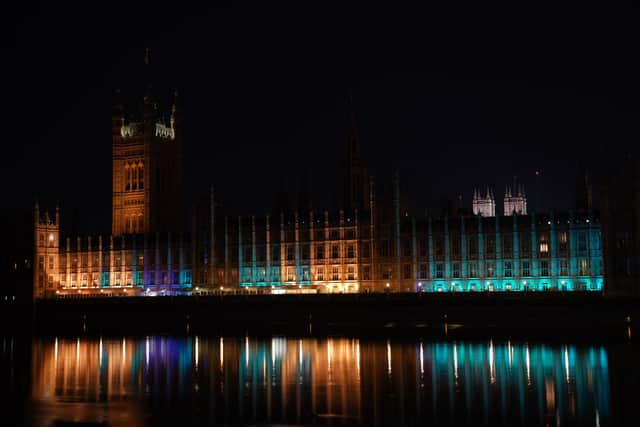Time to face the reality that the NHS isn’t the envy of the world - Bill Carmichael
Talk about party poopers. The festive balloons had barely been inflated when they were popped by a succession of former Prime Ministers, former Health Secretaries and a whole slew of think tanks diagnosing terminal decline of the NHS if changes are not made.
For example, former Labour leader Tony Blair argued that the NHS will continue to deteriorate and lose public support unless it embraced a revolution in technology, and made much more use of private healthcare providers to cut waiting times.
Advertisement
Hide AdAdvertisement
Hide AdIn a foreword to a new report from the Tony Blair Institute think tank, the former Prime Minister said: “The NHS now requires fundamental reform or, eventually, support for it will diminish. As in the 1990s, the NHS must either change or decline.”


He argued that every patient should be given an online personal health account that would allow people to see a record of all their tests and treatments, and would include personal health data from wearable devices, such as Fitbits.
Former Health Secretary, Sajid Javid, meanwhile said the NHS is “frozen in time” and has left Britons sicker than those in many Western countries because of lower cancer survival rates and lower life expectancy.
He called for the overhaul of the NHS and the setting up of a Royal Commission to conduct a “dispassionate and honest assessment” of the health service to “make sure the NHS is here in another 75 years”.
Advertisement
Hide AdAdvertisement
Hide AdThen three prestigious think tanks, the King’s Fund, the Nuffield Trust and the Health Foundation, wrote to all three of the party leaders calling for more resources in terms of beds, equipment and new technology, and reform of the adult care system.
These worries about the future of the NHS are reflected among the public. Although opinion polls show overwhelming support for an NHS “free” at the point of need, and funded by taxation, overall satisfaction with the healthcare system has plummeted to 29 per cent - the lowest since records began in 1983.
One problem with the NHS, as former Chancellor Nigel Lawson once said, is that it is “the closest thing the English people have to religion” and the image of it in the public’s mind is detached from reality.
This rosy view of healthcare is sustained by a number of damaging myths, the most persistent being “the NHS is the envy of the world”.
Advertisement
Hide AdAdvertisement
Hide AdIt isn’t, and no advanced country has followed our example by creating monolithic top-down healthcare systems controlled by the state.
The reason for this is that in international comparisons the NHS performs very poorly in crucial areas.
For example, research by the King’s Fund, released last month, shows that in terms of “avoidable mortality rates” the NHS is ranked second bottom of 19 advanced western countries surveyed.
In other words it does a very poor job of keeping people alive, which is the entire point of a healthcare system.
Advertisement
Hide AdAdvertisement
Hide AdAnother common myth is that “NHS cuts” have damaged health care. But there have been no “NHS cuts”. In fact spending on the NHS in real terms, allowing for inflation, has increased every year since at least 2010, and now stands at more than £157bn, compared to £115 bn just ten years ago.
Now whether that increased spending has been sufficient, given the increased demands on health care, is a moot point. Health care accounts for more than 42 per cent of total public spending, and that figure is likely to rise.
And here is the nub of the whole issue. We are a rapidly ageing population. Of course it is good news that people are living longer, but this inevitably puts increased pressures on healthcare, with 70 per cent of health spending going on caring for people with chronic conditions such as diabetes, obesity, and heart and lung disorders. This trend is certain to continue, so the NHS is going to need massive increases in budgets. The question is, is the general public prepared to pay more?
I think that people are prepared to pay more when it comes to their own health and that of their families. That is why insurance based systems, used widely in many other advanced countries, work so well.
But whether they are prepared, as the NHS system demands, to pay for others, many of whom never contribute anything to the system, is another matter entirely.